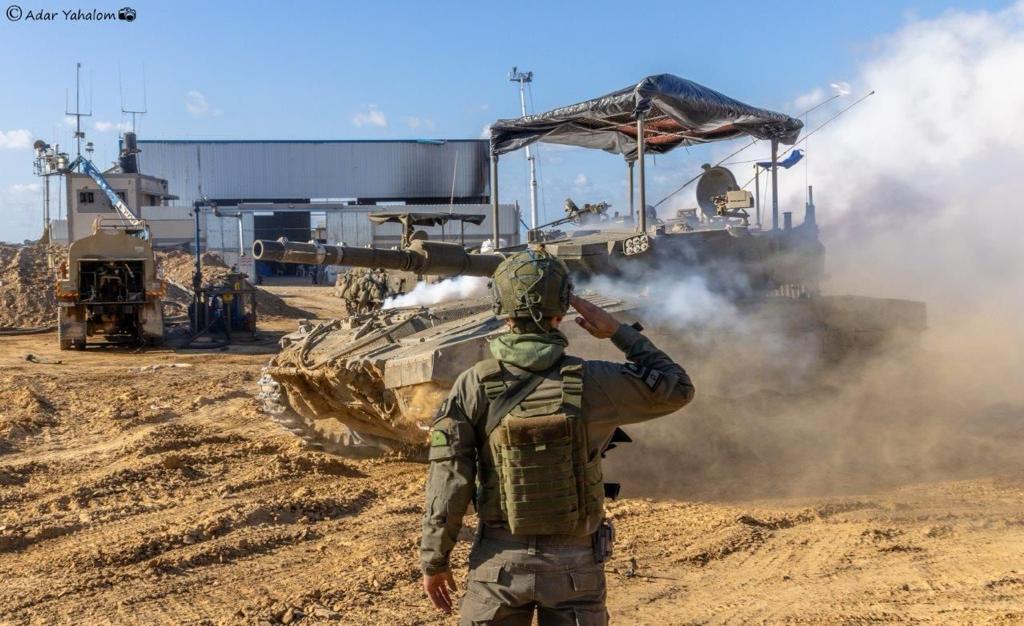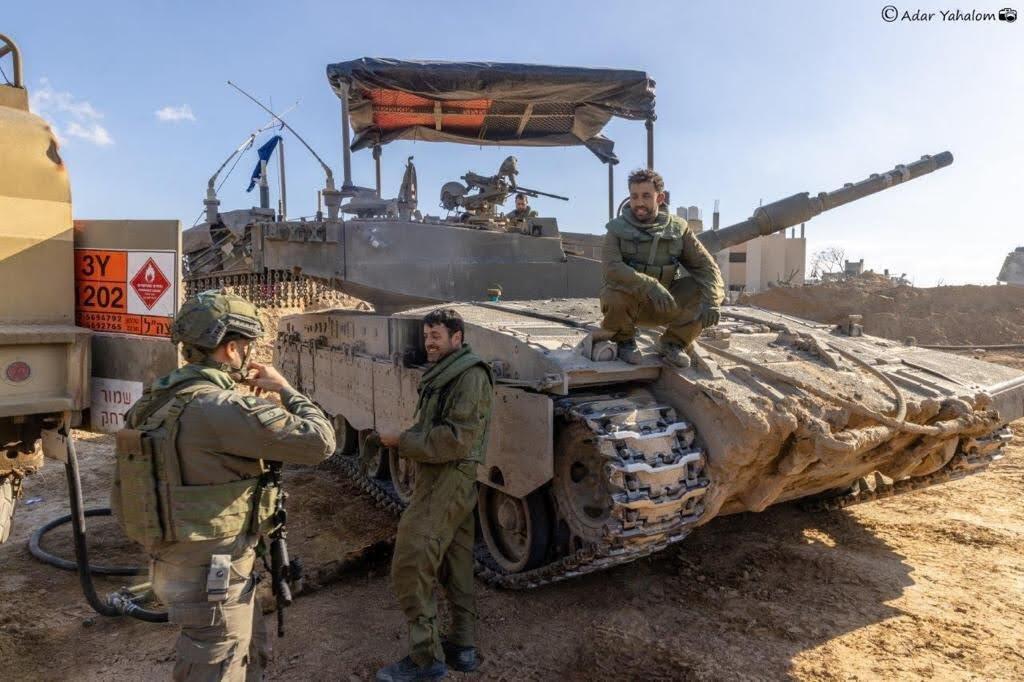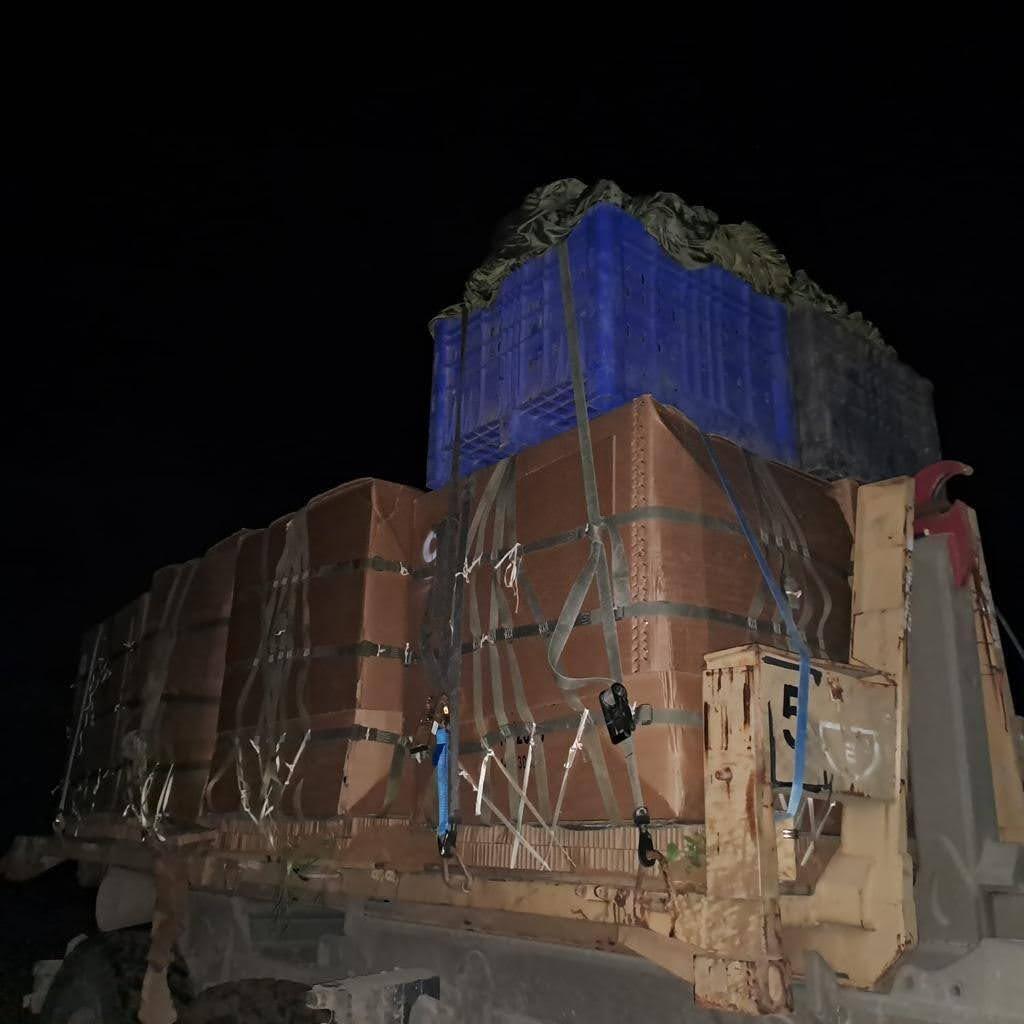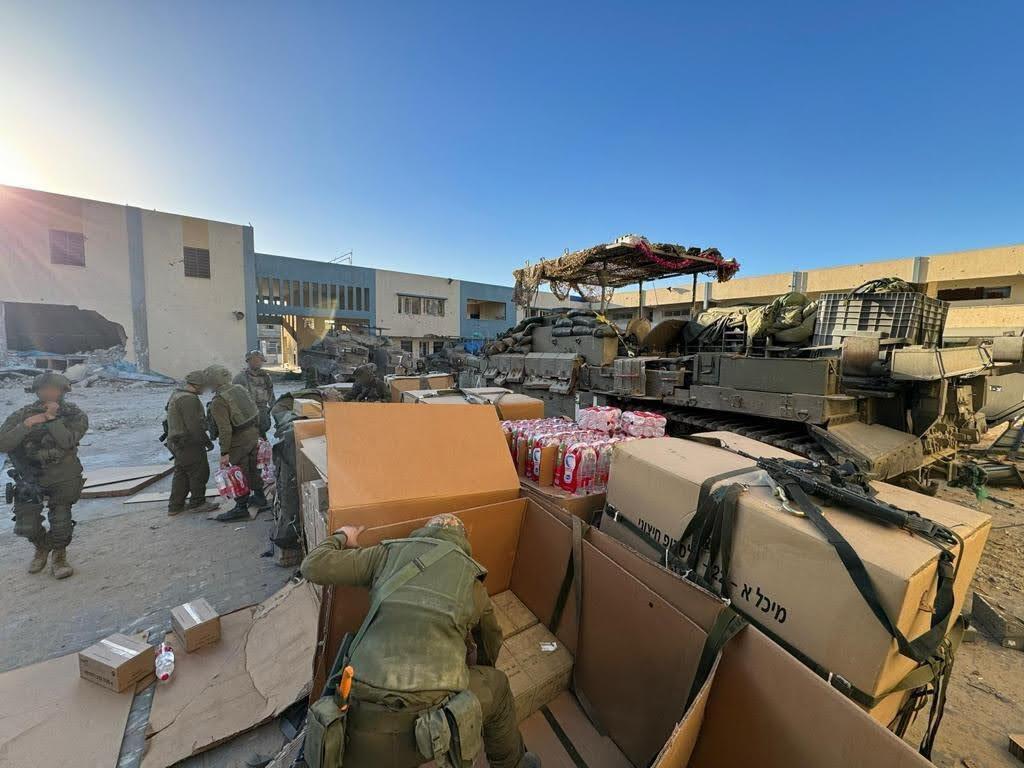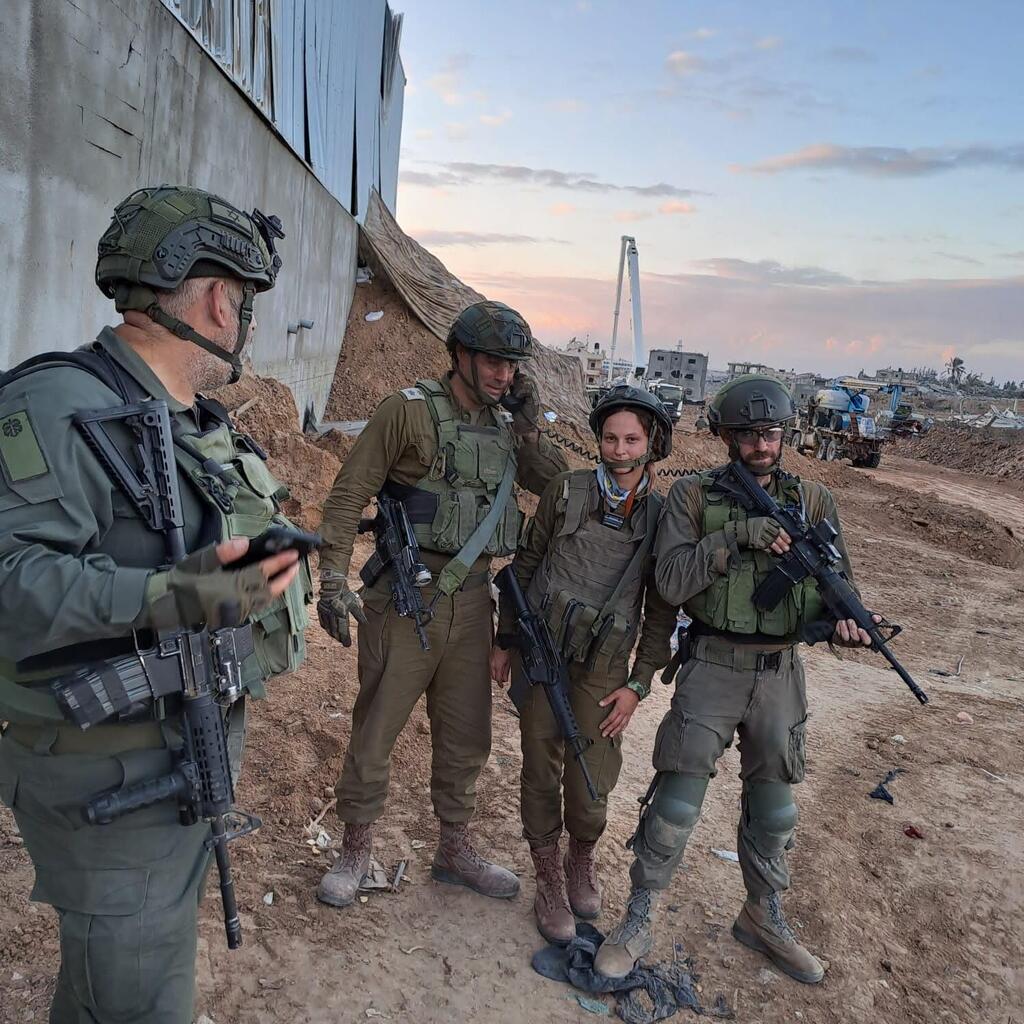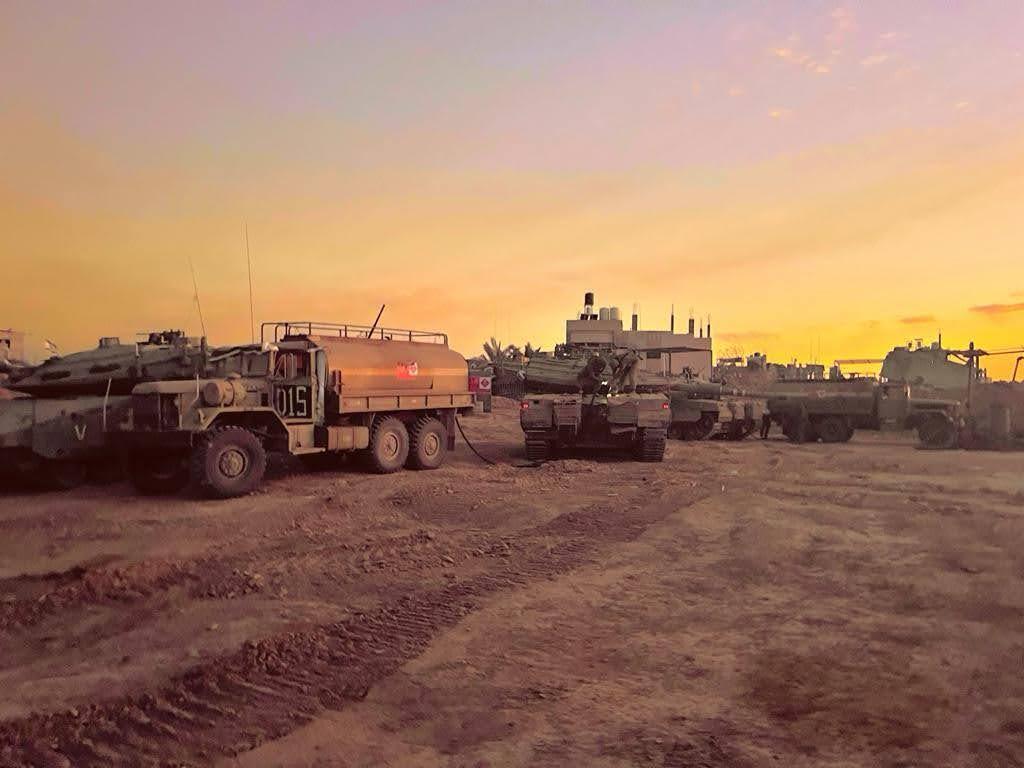Getting your Trinity Audio player ready...
The 98th division's forward logistics unit, which specializes in replenishing supply and evacuating wounded soldiers from the front lines, was called up with some urgency on the morning of October 7 to its base camp for initial organizational tasks, subsequently going down south for its first of many difficult tasks, tailor-made for the unit's attributes.
Read more:
But even they weren't entirely ready for what they saw. A string of mutilated bodies, discarded all over Kfar Aza and Nir Oz. Some of the unit's troops, as well-trained as they might have been, required psychological support and assistance.
Major (Res.) Roee Lahav, a supply lines officer in charge of maintaining a regular replenishment schedule for troops taking the fight to Hamas, says: "Personally, the war caught me standing in front of my wife and children, explaining why, at this difficult hour, I must leave them and head south, possibly not being able to contact them for days.
"My job as a supply replenishment officer entails actualizing a divisional plan to make sure no soldier wants for anything, more so tactically as they head off to combat in Khan Younis, with a dual objective of bringing back the hostages and crippling Hamas.
"In order to meet these demands, we've established a forward operations base in the Khan Younis sector, which became a sort of oasis for exhausted troops with various operational needs, such as filling Tanks with Diesel, eating a warm meal (Kabanos sausages were a huge hit!), drinking some hot, free coffee or simply using the restroom and taking a shower."
Is there a difference when it comes to replenishing supply lines in southern Gaza in comparison to its northern section?
"One of the advantages we had as a unit that came in last after several other units were already deployed deep inside, we had a chance to speak to fellow troops and receive valuable input as to what works and what doesn't in a such a complicated environment. We've put emphasis on reducing distances between various posts. While initially they were around 40 miles apart, which meant ordering equipment and receiving it the same day was not a tangible goal, we managed have posts just 10 miles apart, tops. That meant reduced lag, which benefited the entire division."
What are the items that you have more than enough of, and which ones are lacking?
"It's a tricky question, but I'll put it like this - We have more than enough food, which means field rations, normally given ahead of time for troops that are separated from their forward base for a while, have become everyone's last choice when they're hungry. We have disposable pans with Israeli Couscous with some olive oil, salt and pepper. These fresh ingredients have changed the soldiers' perception of what it means to eat behind enemy lines. We also have specialized dry fruit kits prepared ahead of time for soldiers to snack on, which helps them feel more comforted by their surroundings. We've also built infrastructure of supplying Diesel for Tanks and APCs. In terms of what's lacking, I'm afraid that's classified, wink..."
How does a typical day for a supplies officer look like during war?
"Waking up is called 'assessment at dawn', which means soldiers are ready to roll at around 5:30 tops. We proceed to contact all corresponding units and we ask them to detail their operational needs, and we strive to get it to them by evening. This allows enough time to process the needs of each fighter. By 8:00, I detail all operational needs to my superiors, and they begin working on it, making sure these supplies are promptly delivered. We basically run this forward operation base, from the gas station that has all sorts of combat vehicles coming in for maintenance and diesel, making sure everyone has an ample supply of ammunition and more. Between every act, we take a small breather for some coffee. It's actually protocol. You'd be amazed at how quickly the gas we use to make coffee runs out.
"Later in the morning we make a divisional assessment. For me that means I inform my superiors of everything that transpired throughout the night, which forces came in and in what condition they were. Throughout the day we simply answer operational needs as they arise. As evening comes to a close, we make another assessment to make sure we've successfully got through the day's tasks and prepare for convoys that will enter our base that night. They drive without any lights, to avoid alerting the enemy to their presence, thus reducing casualties."
If you had a chance to speak to the IDF chief-of-staff directly and ask him to improve one thing, what would it be?
"Probably improving our means of communication, to convey information and off-the-cuff needs in a manner that takes less time. However, I'm also aware much of this boils down to budgetary considerations which aren't simple. That said, in terms of basics, we've got things covered."
There are those who say we're progressing nicely and victory is around the corner, while others say vanquishing Hamas entirely could take more than a year. Where do you fall?
"I'll say this - We're prepared to stay in Gaza for a long time, and we have the infrastructure to support such a lengthy endeavor. We'll fight until we achieve victory over Hamas. We're taking the fight to them as we speak. It's true that as reservists, we also have to go home and back to our jobs. After all, Israel needs a functioning economy. We can't let our Gross National Product be reduced or damaged in any way. Still, victory is a highly subjective term, but we are stronger and more resolute than our enemy, who are cowards that hide behind civilians as well as underground. Bottom line, this could take more than a year until we win and some sort of a diplomatic agreement is reached."
Do soldiers in Khan Younis speak of what's happening in the Hague?
"The only advantage of being knee deep with the enemy is that we're disconnected from petty politics, so the entire Hague story does not really occupy much of our time, but when we transitioned into a more prolonged period of staying in Khan Younis, some conversations did rise to the surface, and there are those who have changed the way they think about the whole conflict, so the Hague issue triggers them a bit more. Personally I prefer to stay out of it, mainly because whatever it is Israel does, we always get criticized for it. The issue is they can damage us as a country if they decide against us, in which case we will offer no forgiveness. We must be strong, both militarily and diplomatically."
Does your job mean you're constantly being nagged by people who need something? Is regular sleep too much to ask for in your capacity?
"My job here basically means being the go-to guy about pretty much everything. Whatever is missing - I'm the one they talk to. You can call it nagging, but these are legitimate requests, and there are some fantastic unit staff officers who are incredible and industrious, so that helps alleviate some of the load, and we've managed to acclimate other soldier for meaningful support roles, which also helps. That allows these very precious moments in which I just sit down and enjoy a cup of coffee. Do I get enough sleep? No, but it's possible to push on for the country."
When they told you you're about to enter the Gaza Strip, what did you think about?
"My family, first and foremost. My wife runs the house and takes care of the kids admirably. Gaza is not the kind of place where communication is ample, but the issue of making phone calls is closely monitored, so there's no doubt my stomach turned when I heard about it, but the sense of calling overwhelmed all concerns, big and small, transforming that apprehension into a sort of operational tension that is important when going into war."
Is there anything else you'd like to add?
"Not me, but the outstanding former commander of the forward logistics unit, Lt. Col. Eyal Guy. He summarized what we've been doing quite well: 'The unit first took the fight to the enemy in the Gaza border region, followed by replenishing supplies for forces up north and erecting an operational forward logistics center in Khan Younis as part of the 98th division, providing supplies to Tanks and APCs, treating and evacuating the wounded as well as those fallen in combat, whether by land or air, helped open the requisite safe space for observational units to conduct intelligence and airdropping important supplies to the warriors deep in enemy territory.'"



